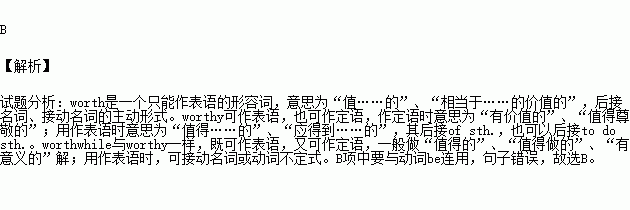题目内容
Which of the following sentences is not correct?
A.I find it worthwhile to take part in the anti-smoking campaign.
B.The new house really didn’t worth so much money.
C.His suggestion is worthy of consideration.
D.He is a gentleman worthy to be respected.
练习册系列答案
相关题目

